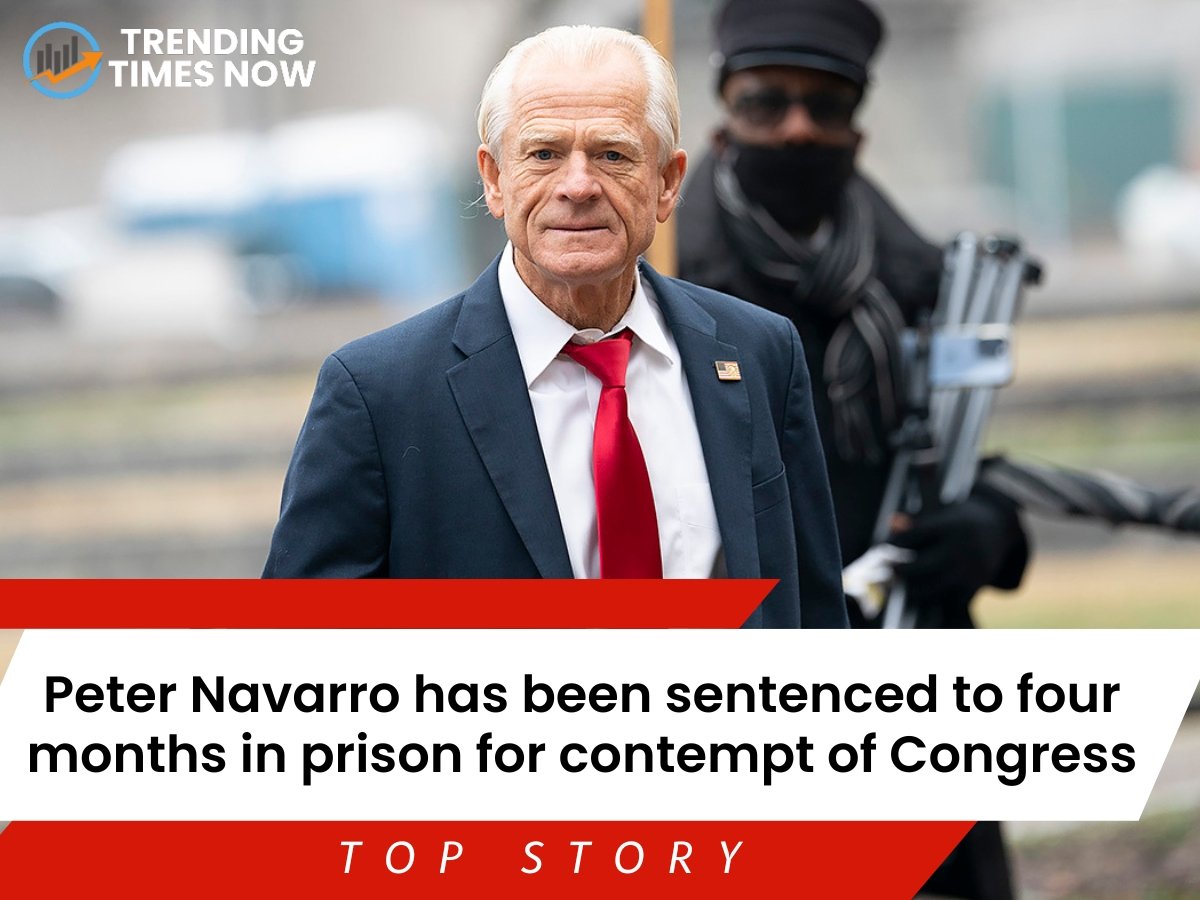Former Trump administration trade adviser Peter Navarro has been sentenced to four months in prison for contempt of Congress. This conviction stems from his refusal to comply with a subpoena issued by the House January 6 select committee in 2021, investigating the Capitol attack. Alongside the jail term, Navarro faces a $9,500 fine. His case marks a significant legal development, highlighting the clash between executive privilege claims and congressional authority.
Background of the Case
Navarro was found guilty of defying a subpoena that sought documents and a deposition regarding the events of January 6, 2021. His refusal to cooperate with the congressional investigation into the Capitol insurrection led to his conviction on two counts of contempt of Congress. The charges carry a significance beyond the individual, addressing broader concerns about adherence to congressional subpoenas and the balance of power between governmental branches.
Legal Proceedings and Sentencing
During the sentencing, U.S. District Judge Amit Mehta emphasized the seriousness of Navarro’s defiance, noting the vital role of congressional investigations in maintaining democracy. Judge Mehta rejected Navarro’s claim of being a victim of political prosecution, asserting that the conviction arose from his own choices rather than any partisan motivations.
Despite Navarro’s defense invoking executive privilege, Judge Mehta clarified that such privilege does not absolve an individual from responding to a congressional subpoena. The judge further noted the lack of acknowledgment of Navarro’s obligation as an American to cooperate with Congress.
Read: Scruitny Over Forgiven $143,043.18 in PPP loans: Ashley Hinson’s Husband’s Company in the Spotlight
The Appeal and Potential Implications
Navarro has expressed his intention to appeal the verdict, potentially taking his case to the U.S. Supreme Court. The outcome of the appeal could set a precedent regarding the limits of executive privilege and the enforceability of congressional subpoenas. This case, along with similar ones, underlines the ongoing legal and political repercussions of the January 6 events.
Contextualizing with Historical Precedents
Peter Navarro’s sentence is notably significant as he is one of the few federal defendants in recent history to face imprisonment for contempt of Congress. This case parallels that of Steve Bannon, another former Trump aide, who received a similar sentence for contempt charges but is currently appealing.







